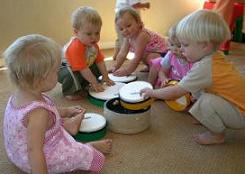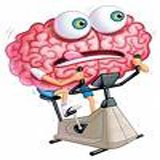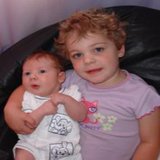Music and Child Development
Music and child development - Is music really important in your child's development?
Researchers have established that music and movement programs affect the development of a child between his birth and primary school years.
Here I want to share with you the benefits of early childhood music and music activities for kids that you can do at home with them.
Music and Child Development

The Importance Of Music and Child Development
- Music influences the neurological development and basic intelligence of a child.
- Music helps with baby language development as it teaches them sequence of events through remembering easy songs.
- Ingenious movement facilitates children to learn various concepts like balance, coordination and rhythmic movement.
- It also encourages creativity because music stimulates their imagination and helps them to visualize.
- Music and movement develop self esteem.
- Music develops body awareness and ensures the development of a social and emotionally balanced child.
- Listening to music develops the quality of auditory discrimination in the child.
- Listening to the sounds of instruments encourage motor development and creative development.
- Through music, children can enhance cognitive skills like counting as well as learning of alphabets, days of the week, address, phone number, etc.
What is Music Therapy?
Music therapy is an interpersonal process in which a trained music therapist uses music and all of its facetsphysical, emotional, mental, social, aesthetic, and spiritualto help kids to improve their health.
Music therapists primarily help children improve their observable level of functioning and quality of life in various domains (e.g., cognitive functioning, motor skills, emotional and affective development, behavior and social skills) by using music experiences such as singing, song writing, listening to and discussing music, moving to music to achieve measurable treatment goals and objectives.
Using Music as Therapy
Music is a vibrant part of all cultures and is therefore a powerful tool when working with children. As music is non-verbal, it can be used to convey thoughts and feelings that feel inexpressible. Children often do not have the vocabulary to say what they have seen or felt.
Music as therapy gives a voice to the unheard and unhealed experience, and assists the remedial process. Musical structures such as songs can be used to tell a persons individual story and the playing of certain instruments (e.g. drum) can help in dealing with strong emotions such as anger.
There exist a whole range of music therapy songs and music therapy activities that enable children to develop and grow into healthy, contributing members of their communities and of society at large.
Music Therapy Research
With all these benefits that music can carry, it's no surprise that music therapy is growing in popularity. For more information on music therapy, visit the American Music Therapy Association's website.
The music therapist adapts to the needs of each child with the aim of promoting their physical, social and emotional development.
Music therapy research has shown that music as therapy aims to:
- Develop a therapeutic relationship that addresses the social and emotional needs of the child. Music is used here as a way of expressing feelings.
- Allow the child to explore their physical and social abilities.
- Maintain and develop communication and language skills, such as turn-taking and choice-making.
- Provide an opportunity for the child to explore how they can have an impact on their surroundings and others.
- Assess the abilities and needs of the child for the benefit of other professionals in the multidisciplinary team.
Music and Child Development - Mozart Effect
The buzzword, "Mozart Effect", has been bandied about by popular print and broadcast media. It is featured in parenting, education, and music oriented publications, and in the mainstream general press. While it has renewed interest in classical music education and focused much deserved attention on the general field of childhood development.
The French researcher, Dr. Alfred A. Tomatis used the music of Mozart in his efforts to "retrain" the ear, and believed that listening to the music presented at differing frequencies helped the ear, and promoted healing and the development of the brain.
Things to Remember...
To get the most benefit during music lesson plans keep the following in mind...
- Keep music simple
- Use a variety of music
- Use repetition
- Use familiar words
- Use movement
When singing you must remember to S-L-O-W D-O-W-N! Singing too fast is the most common mistake parents make.
- Repeat, repeat, repeat and then repeat again
- Use simple language that is at the level of your listener
- Let your listener learn at their own pace
- Make up songs about what you are doing to reinforce language, driving, walking, playing, a certain toy, brushing teeth, getting dressed, etc.
In my opinion, music and child development goes hand in hand. In the end it is your decision what you do with this.
Cognitive abilities, communication skills, social domain, motor skills and emotional development are all areas affected by using music as therapy.
Music expresses that which cannot be put into words and cannot remain silent - Victor Hugo.
See Also...
- Baby Language Development
- Baby Language
- Language Development Stages
- The Benefits of Music on Child Development
- Music and Child Development
- Articles on Music Therapy
Find It!
Can't remember where you read something specific? Just type in your search term in the box below and your specific topic will be returned to you instantly.









